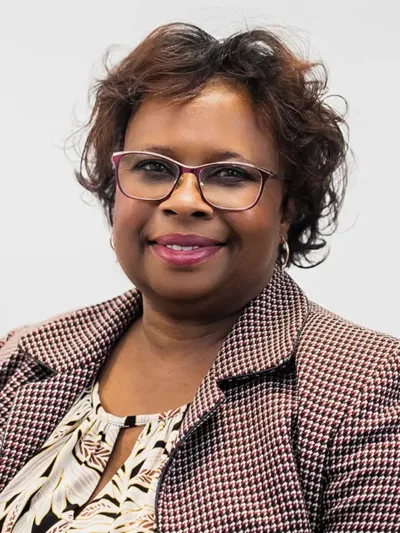Written by Lee Nelson
Reading Time: 9 min
Garrett VonDerHeide began his career as a REALTOR® a few years ago, but he understands the importance of a good business plan to keep him focused and encouraged.
“You have to find your passion and put it in your business plan,” says VonDerHeide, who is a member of Team Wycoff at Berkshire Hathaway HomeServices Central Illinois, Bloomington. “When you are feeling discouraged and not meeting your goals, get back into that business plan. It’s like that slap in the face you need.”
He believes a plan becomes crucial in this ebb-and-flow real estate industry because agents don’t know if they’ll make any money at all. When a slow period sets in, you have to ramp up your production somehow, and the plan can give you insight and motivation to move ahead, he says.
Steve Lome is a former real estate developer who counsels small business owners in the Chicago area as a member of SCORE, the nation’s largest network of volunteer business mentors.
“A good plan is like a GPS that guides you through each state of starting, running, and managing a business,” he adds. “Before you spend your first dime, it provides an opportunity to think through the challenges and details of how your business will run.”

Garrett VonDerHeide
Team Wycoff, Berkshire Hathaway HomeServices Central Illinois
Bloomington
Don’t reinvent the wheel
There are all kinds of templates or formats available online including from such organizations as SCORE. You can choose a different template for a startup or established business.
The template for beginning businesses showcases sections that help you figure out your marketing, operational and financial plans.
Being a REALTOR® means being your own boss, even though you are hanging your license at a brokerage. Writing a business plan lets you carefully consider many aspects and issues that you might face through the next year, how you will move ahead to accomplish what you need and how you can modify the plan when life and the market changes.
“A business plan allows an agent to accomplish their goals by reducing the large goal—which usually is income—into significantly smaller achievable goals,” says Kevin Horstman, managing broker/owner at Berkshire Hathway HomeServices Crosby Starck Real Estate, Rockford. “Instead of dreaming of earning $100,000 per year with no plan, a plan allows agents to focus on the small steps they need to complete in order to achieve the larger goal.”
He actually sits down with his agents one-on-one about 30 minutes each winter.
“We note their goals from prior discussions and save them to track and refer to. We ask them what their goal is for the coming year and discuss what they can do differently or additionally to accomplish that goal,” he adds.
“Instead of dreaming of earning $100,000 per year with no plan, a plan allows agents to focus on the small steps they need to complete in order to achieve the larger goal.”
Kevin Horstman
Start with the basics

Sheryl Carter
Coldwell Banker Residential
Chicago
Business plans don’t have to be complicated or pages and pages long.
The National Association of REALTORS® (NAR) stresses that making a business plan provides an easy-to-understand framework and allows you to navigate the unexpected. Planning out all the major things you must do each day, each week, or each month to get you to where you want to be, gives you the stability and strength to keep going.
Sheryl Carter had owned a very successful balloon decor business for 15 years with a business plan each year. She has continued that tradition as a REALTOR® with Coldwell Banker Residential, Chicago, since 2005. With her background as a business owner, she sees many agents who don’t treat being a REALTOR® like running their own business.
“If you are in the mindset that you are running a business, then you use that to set your goals,” she adds.
With low inventory and high interest rates, some REALTORS® will have to readjust their plans for 2024 to meet their own financial goals.
Horstman believes in the SMART goal making process: specific, measurable, achievable, relevant and time bound.
“Goals can be lofty but must be realistic as well, and a goal without a deadline is a dream,” he says.
Add financial projections
One key to figuring out how much you want to make or can make is to review the prior book of business and closings as far back as possible, Horstman adds.
You determine where each lead came from that led to a closing, how many open houses you need to work, and how many contacts you need each week in order to earn your desired income.
“It’s much easier for our hunter/gatherer brains to focus on what we need to accomplish today and this week rather than it is for us to focus on all 52 weeks at once,” he states.
Since the business fluctuates, some REALTORS®, especially those not as established yet, will have to rely more on their savings or different revenue streams along with more creative ideas to gain clients until the market stabilizes.
So far, VonDerHeide says he has been fine financially and actually exceeded his REALTOR® goal this year.
“But we really have to work for it these days,” VonDerHeide says. “When you see something isn’t working, you work harder at it from farming your sphere of influence to hitting the opens houses. Repetition in this business is huge.”
“A good plan is like a GPS that guides you through each state of starting, running, and managing a business. Before you spend your first dime, it provides an opportunity to think through the challenges and details of how your business will run.”
Steve Lome
Discover your competitive edge during tough times
Carter gains a competitive advantage by checking on tax bills for the clients she has worked with.
Recently, she had a client buy a condo. However, they never received the tax bill because it was going to the former owner. She gave them advice about what to do to get it fixed, and also told them that they weren’t getting the exemptions they deserved, and they were due a refund.
“I don’t just sell them a house. I will always care for them and look out for them,” she says.
She also sends postcards for birthday and anniversaries, and sends out a monthly newsletter, too.
Horstman agrees that personal attention and staying in communication with your sphere and even your cold leads can get you business. He suggests REALTORS® make a plan that includes setting aside time to contact every client weekly whether you have new information to share with them or not. You should also devote time daily to return calls to every person who calls you each day. Use calendars and other technology to set up reminders to ensure you do what you say.

Kevin Horstman
Berkshire Hathway HomeServices Crosby Starck Real Estate
Rockford
Figure out what you offer your clients
First, you have to determine who your target client might be and your market, such as a golf community or first-time homebuyers. Then, you will be able to create a clearer plan and path to reach your goals, according to NAR.
The U.S. Small Business Administration (SBA) suggests listing things you can leverage to create value for your customers. That could mean providing a list of reliable vendors to help your clients whether it’s lenders, painters, landscapers, and more. It can be your expertise in certain areas such as negotiations, social media marketing, or specific types of homes like luxury or starter homes.
Separating yourself from other REALTORS® and showcasing your strengths can give you an edge. If you have designations and certifications, highlight those and explain what that means for your clients. Sometimes, it’s secondary offerings that can win clients over, such as staging or home rehabilitation. If you do have other offerings, you need to figure out how much clients will pay you for those services and how they will pay you.
“If you are in the mindset that you are running a business, then you use that to set your goals. Goals can be lofty but must be realistic as well, and a goal without a deadline is a dream”
Sheryl Carter
Market your business
How will you let your customers know who you are and what you offer them?
“You are now a small business, so what is your marketing budget?” Horstman comments. “If you don’t have a budget or a plan, it’s hard to grow any small business, and that’s what REALTORS® are.”
The SCORE business plan asks you to put down the most cost-effective and effective ways to market you and your business whether it’s through social media, business cards, flyers, newspapers and more. Also, you need to understand how much some of that will cost and make a budget for it.
Add in your time off
“Real estate is a career that will take over your life, if you let it,” Horstman adds. “Time blocking important items like family is crucial. An appointment in a calendar with family is as important as a listing appointment.”
He believes that success at navigating work/life balance is an art, but the ability to set and accomplish goals in business will lead to the same ability in personal life.
VonDerHeide feels that leisure or work trips need to be put down on the plan.
“Have a backup agent that you trust and who knows how you do business to be able to take care of your clients while you are gone,” he says.
Today, REALTORS® are facing huge challenges and unknowns which include inventory shortage and high interest rates, which are “choking the housing market,” Lome states.
“A business plan is a living document that can be tweaked and adapted as circumstances change over time,” Lome states. “The challenge in a changing market is to adapt.”
About the writer: Lee Nelson is an Illinois-based writer whose work regularly appears in REALTOR® Magazine and other industry publications.







